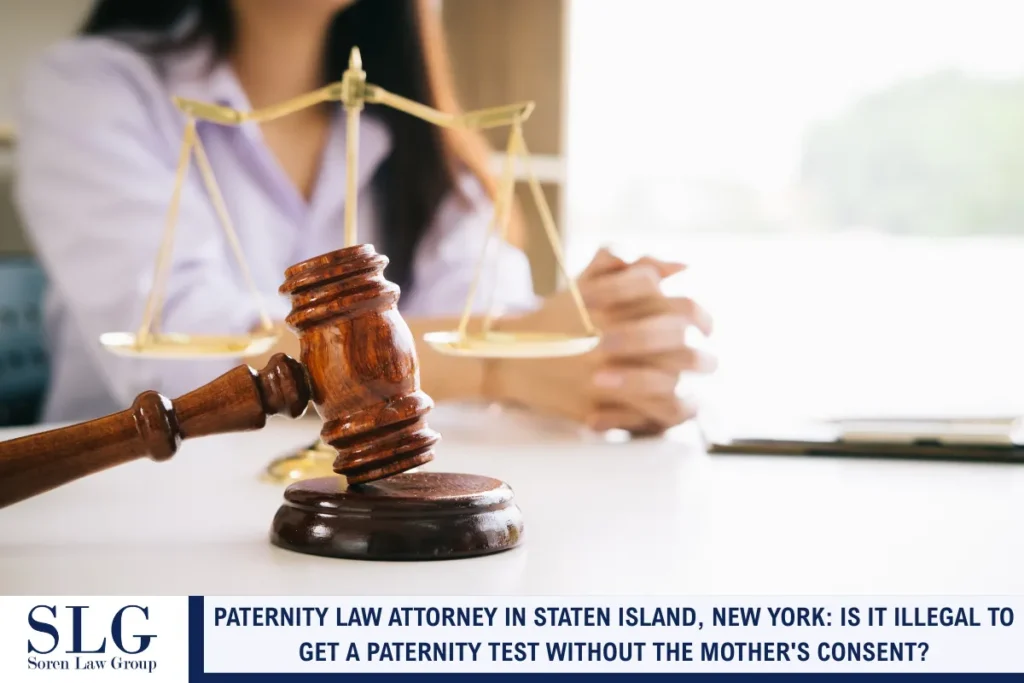A paternity law attorney plays a crucial role in resolving legal matters involving the determination of a child’s biological father, especially in complex or disputed situations in Staten Island, New York. Establishing legal paternity isn’t just about identifying biological links; it’s about securing a child’s rights, ensuring parental responsibilities are met, and providing stability for families through the legal system. Whether you’re dealing with questions about fatherhood, child support, or custody, the legal process behind paternity can be emotional, sensitive, and legally demanding.
One of the most common questions people ask in this area is whether it’s illegal to get a paternity test without the mother’s consent in New York. This article will examine the legal framework surrounding paternity testing in Staten Island, outline the circumstances under which consent is required, and detail the consequences of unauthorized testing. We’ll also discuss how paternity is legally established and why hiring a knowledgeable attorney can protect your rights.
What Is Paternity and Why Is It Legally Important?
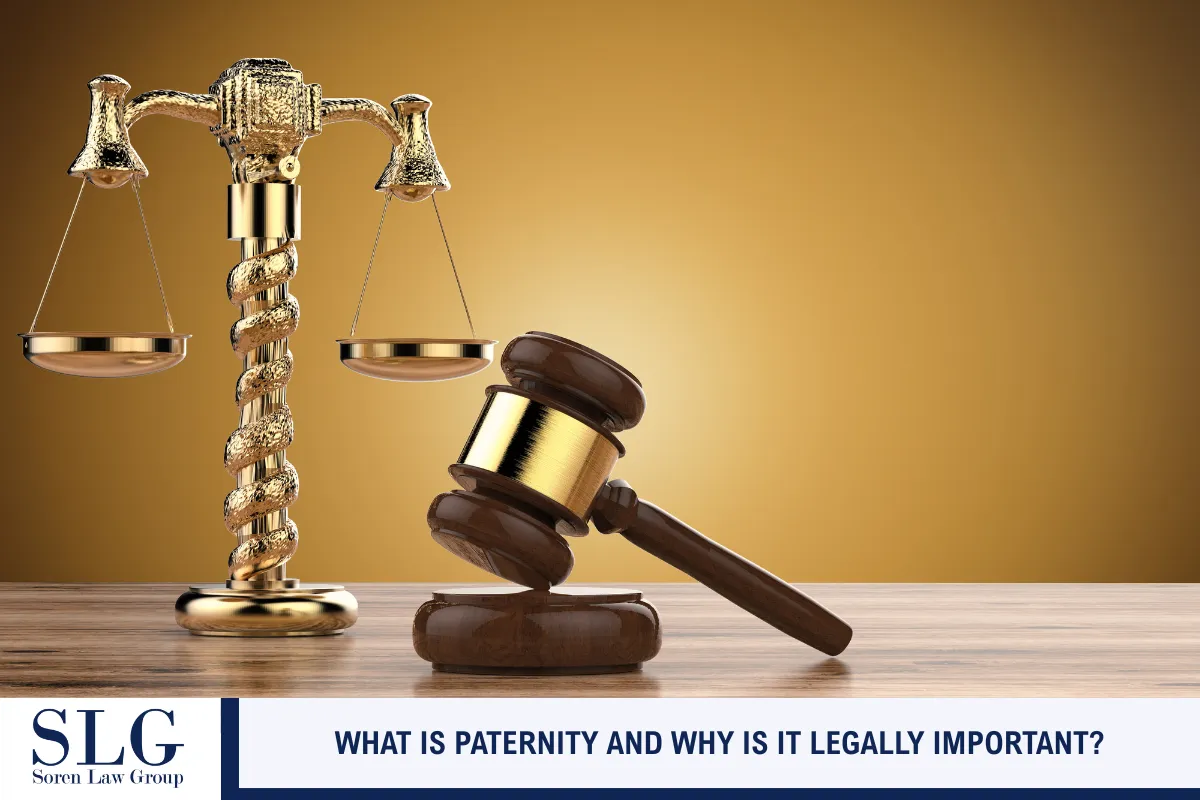
Paternity refers to the legal acknowledgment of a man as the father of a child. While this can be biological, in legal terms, paternity involves more than just genetics. It directly ties into rights such as custody, visitation, and the ability to make decisions on behalf of the child, as well as responsibilities like providing financial support.
In New York, including Staten Island, establishing paternity creates a legal relationship between father and child.
This legal connection allows the child to access benefits such as:
- Health and life insurance coverage through the father
- Social security or veterans’ benefits
- Inheritance rights
- Emotional and psychological identity
Without this legal recognition, a father may have no legal standing, even if he’s biologically related to the child. Likewise, a child may be denied financial or emotional support if there is no recognized legal parent. That’s why determining paternity can be so impactful—and why it often requires legal support.
Understanding DNA Testing for Paternity Cases
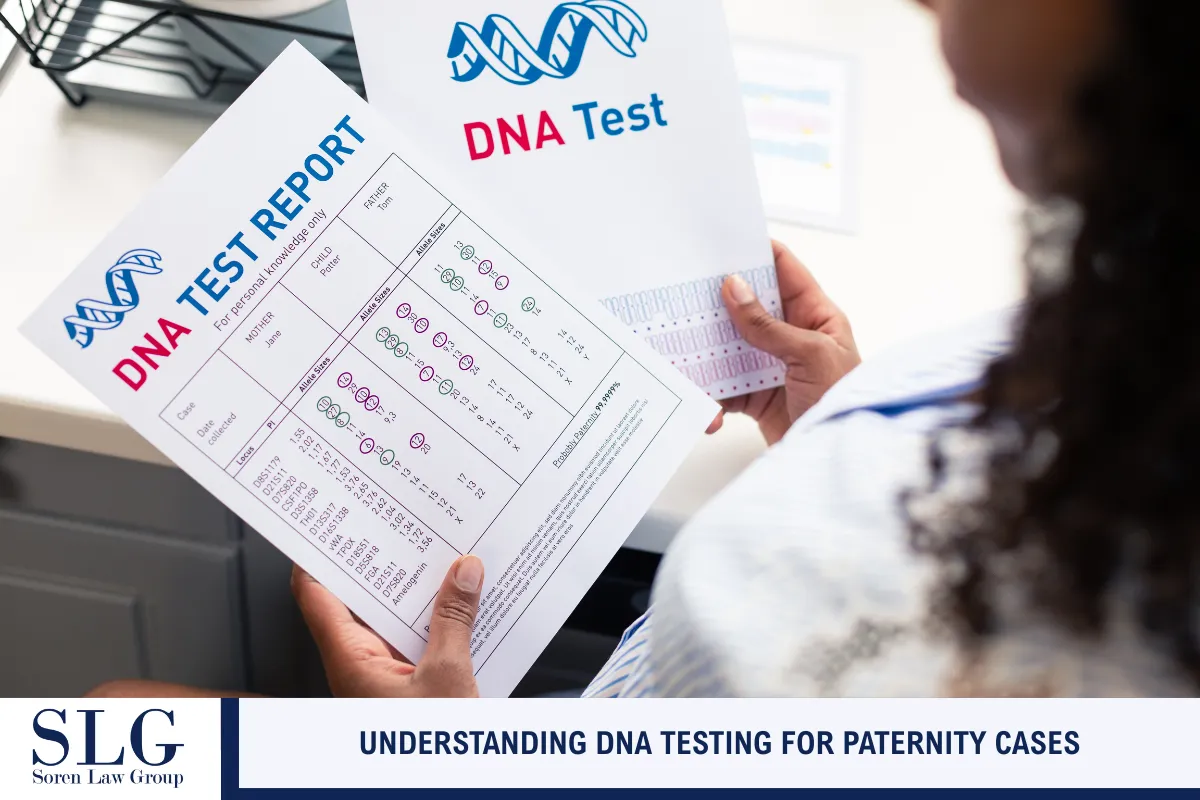
What Is a Paternity Test?
A paternity test is a scientific process used to determine whether a man is the biological father of a child. These tests are typically done through a cheek swab, which collects DNA samples from the alleged father and the child. The results are highly accurate and often used in court to prove or dispute fatherhood.
However, not all paternity tests are legally admissible. At-home tests might provide personal reassurance, but they can’t always be used in court without proper documentation and chain-of-custody procedures. In legal settings, a court-ordered or physician-authorized test is required, and all parties must be informed of the test’s purpose and results.
Is It Illegal to Get a Paternity Test Without the Mother’s Consent in Staten Island?
Legal Overview of Consent Requirements
The legality of getting a paternity test without the mother’s consent in Staten Island depends on the context. New York has specific laws governing the conduct and timing of DNA testing, particularly for minors. Generally, the state requires informed consent from both parents (or legal guardians) if the child is under 18 years of age.
Attempting to perform a paternity test on a child without the mother’s knowledge or consent, and a court order, may be viewed as a violation of medical privacy or parental rights. It could also result in the test being inadmissible in court. For this reason, it’s vital to understand the boundaries and act through proper legal channels.
Voluntary Acknowledgment vs. Court-Ordered Paternity
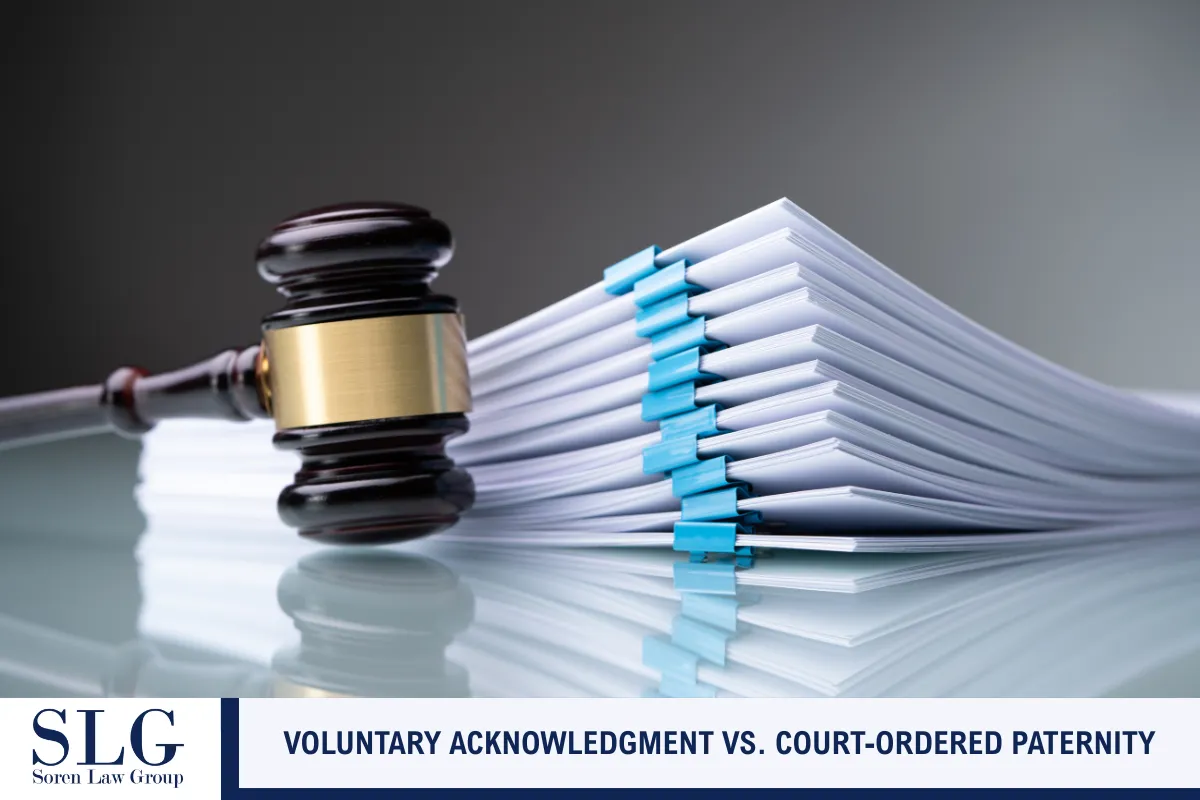
Two Legal Pathways to Establishing Fatherhood
In New York, there are two main ways to establish paternity legally:
1. Voluntary Acknowledgment of Paternity (VAP)
This is a legal document that both parents sign—usually at the hospital when the baby is born—stating that the man is the child’s legal father. Once signed and filed with the state, this acknowledgment has the same legal weight as a court order.
This process is straightforward, but both parents must agree upon it. If either party later contests the acknowledgment, they have a limited window—60 days—to challenge it legally. After that, it becomes binding.
2. Court-Ordered Paternity Petition
If either parent refuses to acknowledge paternity, or if there is a dispute about who the father is, the matter must be taken to Family Court in Staten Island. The judge can order a DNA test, and both parties are legally obligated to comply with it.
In cases where the mother refuses consent for testing, the alleged father can petition the court. If the petition is approved, consent is no longer optional; the court will enforce the DNA test and use the results to make a legal determination.
Legal Risks of Unauthorized DNA Testing
Why Following Legal Procedures Matters
While private paternity tests can technically be done without the mother’s consent, they come with legal risks—especially if used inappropriately.
Here are key risks to consider:
- Inadmissibility in Court: Privately obtained DNA test results may not be recognized in legal proceedings unless all parties have provided informed consent and the test was conducted in accordance with strict legal protocols.
- Violation of Privacy Laws: Performing medical tests on a child without a custodial parent’s consent can violate New York’s health privacy laws.
- Jeopardizing Legal Standing: Attempting to circumvent the legal process may reflect poorly on the father in court, potentially affecting future custody or visitation decisions.
Given these consequences, legal guidance is not just helpful—it’s essential.
How the Court Handles Paternity Disputes
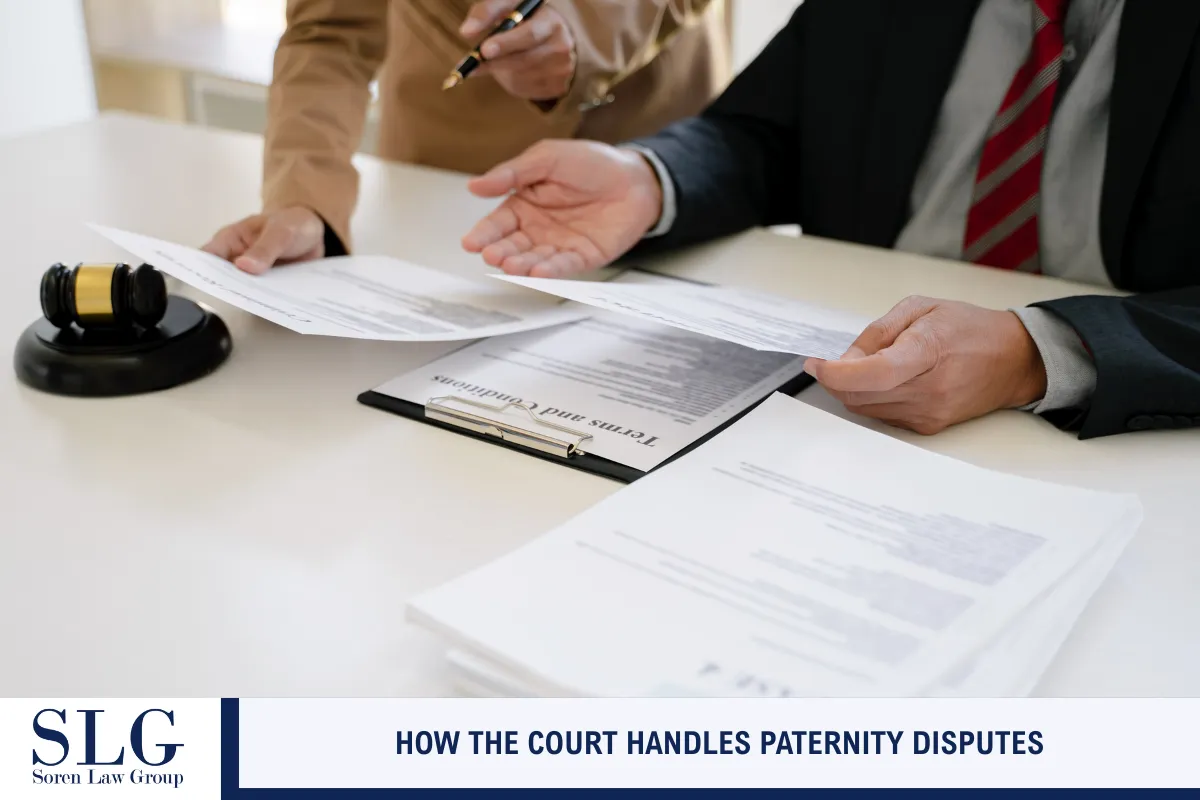
The Role of Staten Island Family Court
Family Court in Staten Island is responsible for handling paternity disputes. Once a petition is filed, the court evaluates the circumstances and determines whether paternity testing is appropriate. If there is a legitimate question of fatherhood and the mother refuses testing, the court can overrule her objection.
The court’s primary concern is the best interest of the child.
Judges consider factors such as:
- The emotional bond between the child and the alleged father
- Whether a man has acted as a father figure
- Financial support history
- The child’s right to know their biological parent
Once paternity is legally established, the court can issue further rulings on custody, visitation, and child support.
What Happens After Paternity Is Established?
Legal Effects on Both Parents
Establishing paternity leads to significant legal consequences for both parties.
For the father, it means:
- Legal rights to request custody or visitation
- The obligation to contribute financially to the child’s upbringing
- The ability to make joint decisions about the child’s education, health, and welfare
For the mother, it means:
- The right to request child support
- Shared legal responsibilities for co-parenting
- Potential limitations on sole custody
More importantly, it provides the child with a stable legal identity and access to both parents.
Reasons to Hire a Paternity Law Attorney in Staten Island
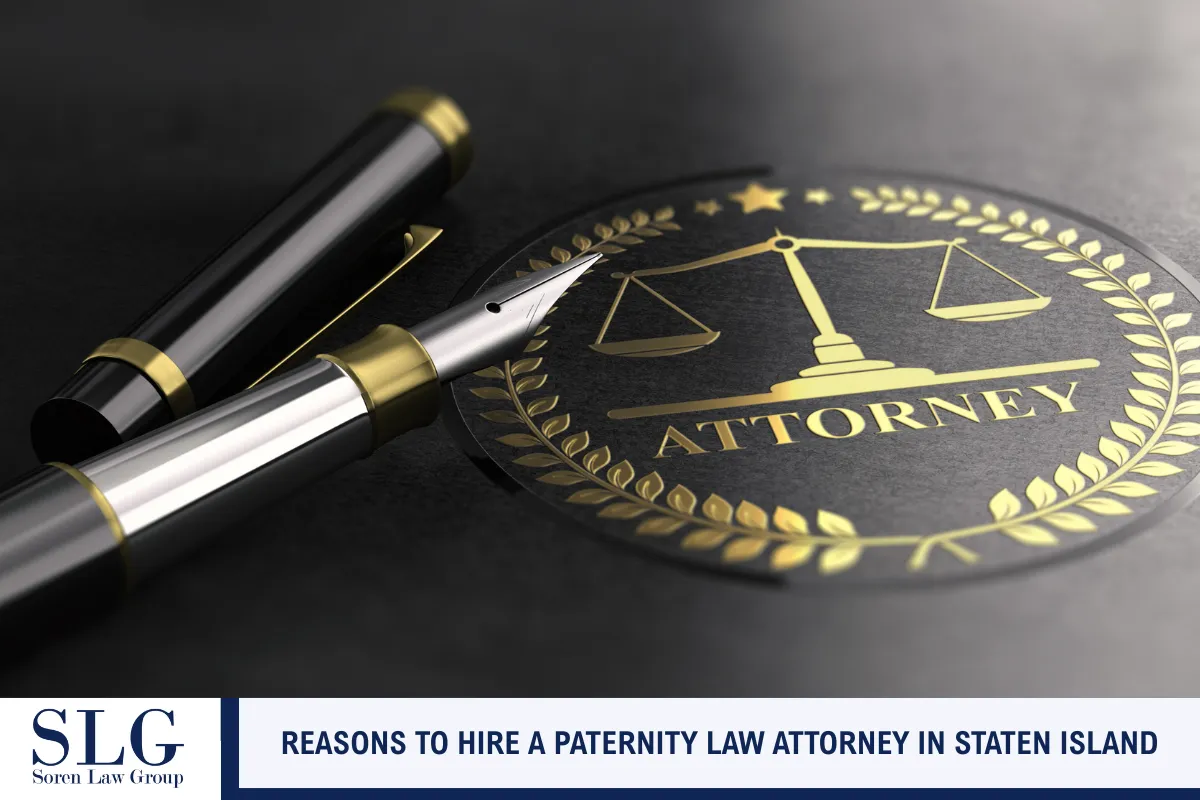
Protecting Your Rights Through Legal Representation
Trying to manage a paternity dispute alone can be overwhelming, particularly when emotions are involved.
A paternity law attorney helps by:
- Navigating complex legal procedures
- Ensuring proper court filings and documentation
- Representing your interests in court
- Preventing costly legal errors or delays
- Making sure the outcome is legally sound and fair
Whether you’re seeking to establish paternity, defend against a claim, or contest a paternity order, having an attorney on your side ensures the process is handled professionally and lawfully.
Key Takeaways for Staten Island Residents
Establishing paternity in Staten Island isn’t just a personal decision—it’s a legal action that affects the rights of the child and both parents. Getting a paternity test without the mother’s consent may be possible in certain situations. Still, it must be done through the proper legal channels to avoid consequences. New York’s paternity laws are designed to ensure that both parties are treated fairly and that the child’s best interests are protected.
Suppose you find yourself uncertain about your rights or unsure how to proceed. In that case, the best course of action is to consult with a qualified attorney who is familiar with the specific family law rules in Staten Island.
Staten Island Paternity Law Attorney – Soren Law Group
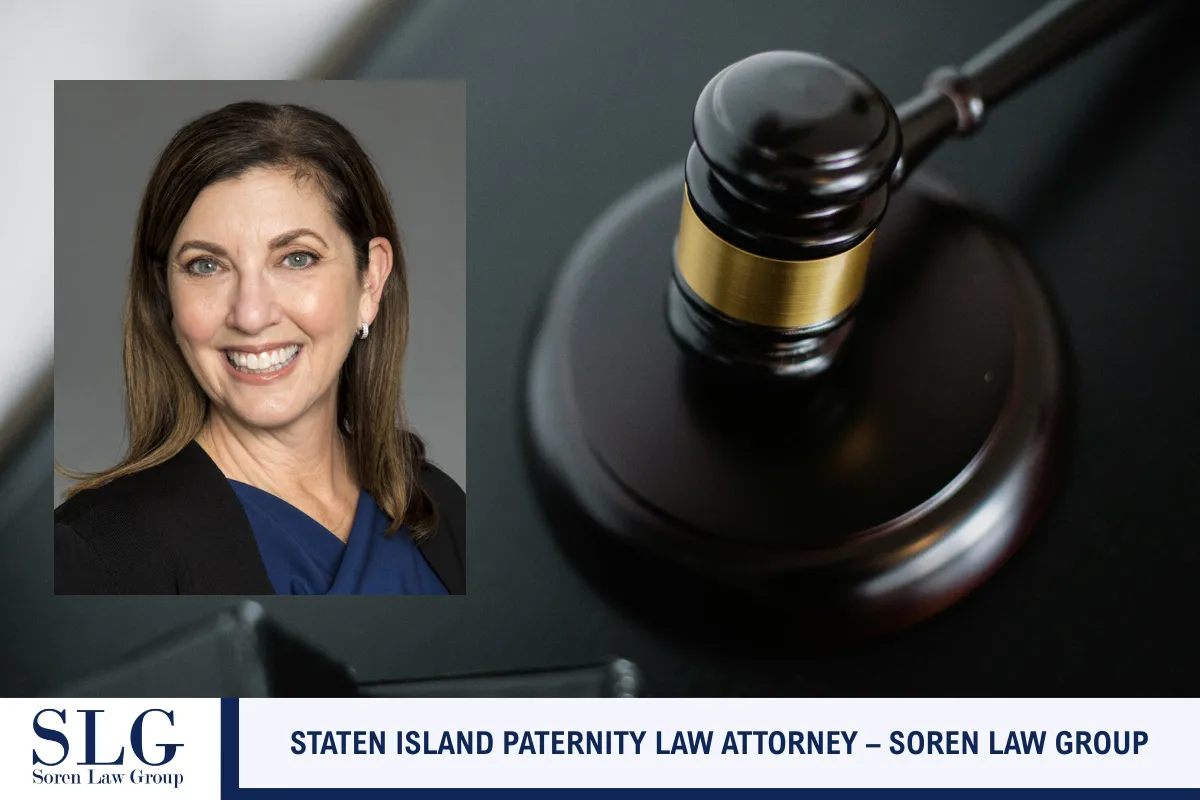
Looking for a paternity law attorney in Staten Island? Soren Law Group focuses exclusively on family law, providing clear and reliable legal support for individuals dealing with paternity matters. Our attorneys are well-versed in the local legal system and handle every case with precision and attention to detail.
We assist with establishing paternity, filing or responding to petitions, navigating court-ordered DNA testing, and addressing child support or custody issues that follow. Whether you’re seeking to confirm legal fatherhood or responding to a dispute, we provide straightforward guidance and strong legal representation.
Contact us today at (718) 815-4500 – we are committed to helping you resolve your legal matter with confidence and clarity.
Frequently Asked Questions About Paternity Testing and Legal Paternity in Staten Island
1. Can a paternity test be used for legal purposes in Staten Island?
Yes, but not all paternity tests are legally admissible in court. For a paternity test to be valid for legal purposes in Staten Island, it must be a legal paternity test—administered under strict protocols that meet state laws.
This includes:
- Collecting the DNA sample from the alleged father, child, and sometimes the legal guardian under professional supervision.
- Using a laboratory that follows the chain of custody process to prevent tampering or misidentification.
- Ensuring the lab results come from an accredited facility.
These steps are crucial in court matters involving child custody, visitation rights, or financial support. Results from home paternity tests, while accurate, usually don’t meet court standards because they lack verified identity and supervised collection. A court-ordered paternity test or one recommended by a Family Law Attorney is often required in court proceedings when disputes arise. It’s best to consult a paternity law attorney to ensure the test is legally recognized.
2. What’s the difference between a biological father and a presumed father in New York?
In Staten Island, and under New York state laws, a biological father is the man whose DNA is matched through genetic testing to the child. A presumed father, however, is someone the law assumes to be the father, even without DNA confirmation.
This presumption often arises in cases like:
- The man is married to the mother at the time of birth.
- His name appears on the birth certificate.
- He openly treats the child as his own and fulfills parental responsibilities.
While the presumed father has certain legal rights, those can be challenged in court, especially by another potential father or the mother. A legal paternity test can confirm or disprove biological relationships. Suppose the biological father wishes to establish rights or challenge the presumption. In that case, he may need to initiate a court proceeding with the assistance of a Family Law Attorney. Only after legal paternity is established can full rights, such as visitation or custody, be granted.
3. Are home paternity tests accurate and accepted in court?
Home paternity tests can be accurate for identifying a biological father. Still, they’re not accepted for legal purposes in Staten Island courts. These tests involve ordering a paternity test kit, collecting a DNA sample at home—usually via cheek swab—and sending it to a lab. While the science behind them is sound, the lack of a chain of custody makes them inadmissible in most court proceedings.
Why courts reject them:
- No proof of who submitted the samples.
- Potential for tampering or mislabeling.
- No professional oversight during collection.
In legal situations, such as establishing visitation rights, securing a name on a birth certificate, or proving parental responsibility, a court-ordered paternity test is often necessary. These tests are performed in certified facilities under controlled conditions, ensuring reliable and admissible lab results. For any legal matter, always consult with a paternity law attorney in Staten Island to make sure you follow the proper process from start to finish.
4. What legal consequences can follow after establishing paternity in Staten Island?
Once legal paternity is confirmed in Staten Island, it leads to several legal consequences for the alleged father and the child’s caregivers. These consequences affect both rights and responsibilities.
Some of the most common legal outcomes include:
- The father may be required to pay child support.
- The child gains rights to the father’s benefits (health insurance, inheritance, Social Security).
- The father can now request visitation rights or even child custody, depending on the situation.
- The child’s birth certificate can be updated to reflect the biological father’s name.
The court might also impose restrictions if the potential father has a history that could negatively impact the child. For this reason, paternity disputes often involve detailed court proceedings, and Family Law Attorneys play a key role in representing both sides.
Understanding these consequences before pursuing genetic testing or filing a paternity case is essential. Speak to a qualified paternity law attorney in Staten Island to fully understand the impact of your decision.
5. How does the chain of custody affect the validity of a paternity test?
The chain of custody is a documented process used to track the handling of DNA samples from collection to testing. It’s a legal safeguard that ensures the sample wasn’t tampered with or misidentified. For a paternity test to be used in court proceedings—like those involving visitation rights, parental responsibility, or child custody—this chain must be unbroken and professionally managed.
Key steps in maintaining the chain of custody include:
- Verified the identity of all participants during sample collection.
- Collection conducted by a trained professional.
- Immediate packaging and sealing of the sample.
- Direct shipment to a certified laboratory.
Without this process, the test could be challenged in court, even if the lab results show a clear match between the alleged father and the child. Home paternity tests, by nature, do not follow this protocol, making them unsuitable for legal purposes. If you’re seeking a test that will hold up in a Staten Island court, a legal paternity test handled through a Family Law Attorney is the correct path.
Read more: When to Consult a Prenuptial Lawyer in Richmond, Staten Island, NY

